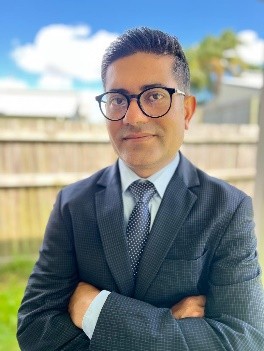Clinical Excellence in Endodontics: Integrating Evidence into Practice
Date: Wednesday 24 September 2025
Time: 6.00pm - 7.00pm AEST
CPD: 1 CPD
FREE LIVE WEBINAR
Presenter

Dr. Shekhar Bhatia, B.D.S (Manipal University), MFDS RCPS (Glasg) (UK), MFDS RCS (Ed) (UK), M.D.S (RGUHS)
Dr. Shekhar specializes in Conservative Dentistry and Endodontics and currently serves as a faculty member in Endodontics at The University of Queensland, Australia. He is also the External Engagement Coordinator at the School of Dentistry.
He has nearly 15 years of teaching experience in Endodontics and has conducted numerous workshops, training many dental practitioners in this specialized field. From 2019 to 2023, he served as the Programme Director for the Postgraduate Diploma in Endodontics at the International Medical University, Malaysia. He was also a faculty member at the same institution from 2014 to 2023, holding positions as Lecturer, Senior Lecturer I, and Senior Lecturer II. Before that, he was the Course Coordinator for the Department of Conservative Dentistry and Endodontics at MAHSA University, Malaysia.
Dr. Shekhar has provided clinical expertise in Endodontics, specializing in primary and retreatment cases under the Dental Microscope since 2010. He was appointed to the rank of Captain in the Indian Army and has received several accolades, including the Best Academic Lecturer Award during Faculty Appreciation Week at the International Medical University in 2014, 2015, and 2019. He was also honoured with the University Teaching Excellence Award (TEA) and the John Simpson Trophy in 2016. Additionally, Dr. Shekhar was a finalist for the Best Teacher Award from the School of Dentistry in 2016, 2017, and 2018, and a finalist for the TEA Award in 2019. He also passed the Specialist Endodontist license examination from the Dubai Health Authority.
Dr. Shekhar has also conducted workshops to prepare candidates for the MFDS Part 2 Examination, a membership examination from the Royal College of Surgeons, Edinburgh, from 2015 to 2023. He holds the Diploma of Membership of the Faculty of Dental Surgery (MFDS RCS, Edinburgh) and the Diploma of Membership of the Faculty of Dental Surgery (MFDS RCPS, Glasgow). His academic affiliations include membership in the Australian Endodontic Society, the New Zealand Endodontic Society, and life membership in the Indian Endodontic Society.
Session Overview:
This webinar focuses on the application of robust scientific evidence to guide treatment decisions in endodontic care. The approach aims to optimize clinical outcomes by combining research data with clinical judgment and patient preferences. Key areas covered include diagnostic accuracy, treatment modalities, and the management of complications, all grounded in the latest evidence. This ensures that practitioners can make more informed, predictable, and effective decisions, leading to improved patient satisfaction and long-term success in endodontic treatments.
By attending this webinar, you can learn to enhance your clinical skills and improve patient outcomes by integrating evidence-based practices into your endodontic treatments learn how to make data-driven decisions for case selection, diagnosis, and treatment planning, while staying up to date with the latest research and clinical guidelines. Gain confidence in achieving clinical excellence, streamline your decision-making process, and discover real-world strategies that can be immediately applied in your practice. This session is perfect for anyone looking to elevate their endodontic care and ensure better, more predictable results. Additionally, attendees will have the chance to interact with experts in the field, ask questions, and stay up to date with latest advancements in this field.
Key Learning Objectives:
• Understand the Principles of Evidence-Based Endodontics. Learn how to incorporate the latest scientific research and clinical guidelines into your everyday practice to enhance decision-making and treatment outcomes.
• Integrate Evidence into Case Selection. Understand how to use clinical guidelines and patient-specific factors to select the most appropriate treatment approach, whether conservative or surgical, based on evidence.
• Translate Evidence into Real-World Clinical Practice. Explore real-world case studies that demonstrate how to effectively implement evidence-based decision-making in everyday clinical scenarios.